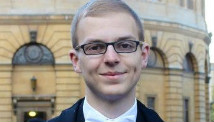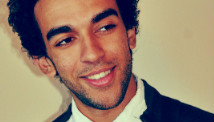STORY HIGHLIGHTS
- Chiefs of staff for the Senate's top Democrat and Republican will lead fiscal cliff talks
- McConnell hopes there will be a plan to present to the Senate "as early as Sunday"
- If there isn't one, Reid says that he'll put an Obama-backed bill up for a vote
- Some congressmen say Americans have a right to be frustrated by the stalemate
As the fiscal cliff looms, what's your New Year's message to Washington? Go to CNNiReport to share your video.
Washington (CNN) -- The Senate's top Democrat and Republican are working this weekend to forge a compromise to prevent the country from going over the fiscal cliff, the combination of sweeping spending cuts and widespread tax increases that will otherwise take effect in days.
Senate Majority Leader Harry Reid, D-Nevada, on late Friday afternoon called the next 24 hours "very important" in the grueling effort to avert a crisis that has been two years in the making. House Speaker John Boehner has called on the Senate to go first, and then his chamber -- which reconvenes Sunday -- will act.
Sen. Mitch McConnell of Kentucky, the Senate Minority Leader, expressed hope that he and Reid will agree on a plan to present to their respective caucuses "as early as Sunday."
Early Friday evening after a meeting involving him, congressional leaders and top administration officials, President Barack Obama said he was "modestly optimistic" the Senate leaders would reach an agreement. At the same time, he conceded, "Nobody's going to get 100% of what they want."
The two senators' chiefs of staff -- David Krone for Reid, and Sharron Soderstrom for McConnell -- will lead the talks, much of which will be carried on over the phone and by e-mail, aides said. Neither of their bosses is expected to be in the Capitol on Saturday, though that could change.
Staffers for Boehner, the top man in Republican-led House of Representatives, won't directly take part in the negotiations, but they'll be kept informed by McConnell's staff, a GOP aide said. The White House will learn what's going on through Reid's staff.
Democrats believe Republicans should make the "first move" -- basically by saying what changes should be made to the president's proposal, which calls for tax rates to stay the same for all annual family income below $250,000. The expectation is that Republicans will try to raise that income threshold to $400,000 and push to keep estate taxes low; Democrats said they might be open to one such scenario, but not both.
If the offer is "laughable," a Democratic aide said it will probably be leaked to the media. If it is reasonable, it should remain private -- which would mean, for Saturday at least, that no news may be good news.
And if the two sides don't agree on a bill over the weekend, Obama said he wants his latest proposal to be put up for a vote in both the Senate and House. He predicted his plan -- which, in addition to his tax rate proposal, would extend unemployment benefits and "lay the groundwork" for deficit reduction -- would pass in both chambers with bipartisan support.
As members of Congress and their staffs talk, Obama will make his case to the public by appearing Sunday on NBC's "Meet the Press," his first appearance on a Sunday political talk show in three years.
Reid said, at the very least, that he'd prepare legislation that includes elements favored by for a vote by Monday. Still, he insisted he'd first work with his GOP colleagues.
"I look forward to hearing any good-faith proposals Sen. McConnell has for altering this bill," the Nevada Democrat said.
If no legislation passes both chambers and therefore remains unsigned by the president by year's end, the fiscal cliff will go into effect -- something economists warn could trigger a recession.
The lack of political movement thus far, and lack of confidence Washington politicians can get anything done with so little time left, has spurred consumer confidence to sag and stock market values to sink.
Some like Democratic Sen. Chuck Schumer of New York expressed cautious optimism Friday that the looming deadline, and the key players renewed engagement, would spur a deal. But others, like Republican Sen. Bob Corker of Tennessee, derided the process so far as "a total dereliction of duty on every level."
"I've been very surprised that the president has not laid out a very specific plan to deal with this," he said on CBS "This Morning."
"But candidly, Congress should have done the same. And I think the American people should be disgusted."
The principal dispute continues to be over taxes, specifically Democrats' demand to extend most tax cuts passed under President George W. Bush while allowing higher rates of the 1990s to return on top income brackets. During his re-election campaign, Obama said this would protect 98% of Americans and 97% of small businesses from tax hikes.
Republicans have opposed any kind of increase in tax rates, and Boehner suffered the political indignity last week of offering a compromise -- a $1 million threshold for the higher rates to kick in -- that his GOP colleagues refused to support because it raised taxes and had no chance of passing the Senate.
Obama and Democrats have leverage, based on the president's reelection last month and Democrats' gains in the House and Senate in the new Congress. In addition, polls consistently show majority support for Obama's position on taxes, and Democrats insist the House would pass the president's plan with Democrats joined by some Republicans if Boehner allowed a vote on it.
However, influential anti-tax crusader Grover Norquist has vowed to back primary challenges against Republicans who violate his widely signed pledge not to raise taxes. Even if a deal is reached, Norquist has predicted yet more budget showdowns every time the government needs additional money to operate.
The two sides seemingly had made progress early last week on forging a $2 trillion deficit reduction deal that included new revenue sought by Obama and spending cuts and entitlement changes desired by Boehner.
Boehner appeared to move on increased tax revenue, including higher rates on top income brackets and eliminating deductions and loopholes. But his inability to rally all House Republicans behind his plan raised questions about his role and what comes next.
All this has fueled disdain for politicians by many Americans. Such contempt is deserved, said Rep. Steven LaTourette, an Ohio Republican, who is retiring from Congress.
"I think America should be embarrassed by its leadership in D.C.," he told CNN on Friday. "The fact that we have been unable to do things, and instead worried about our next elections. ... I think it's sinful."
What happens to the economy if we go over the cliff?
CNN's Jessica Yellin, Tom Cohen, Dana Bash, Deirdre Walsh, Ted Barrett, Greg Botelho and Kevin Liptak contributed to this report.














